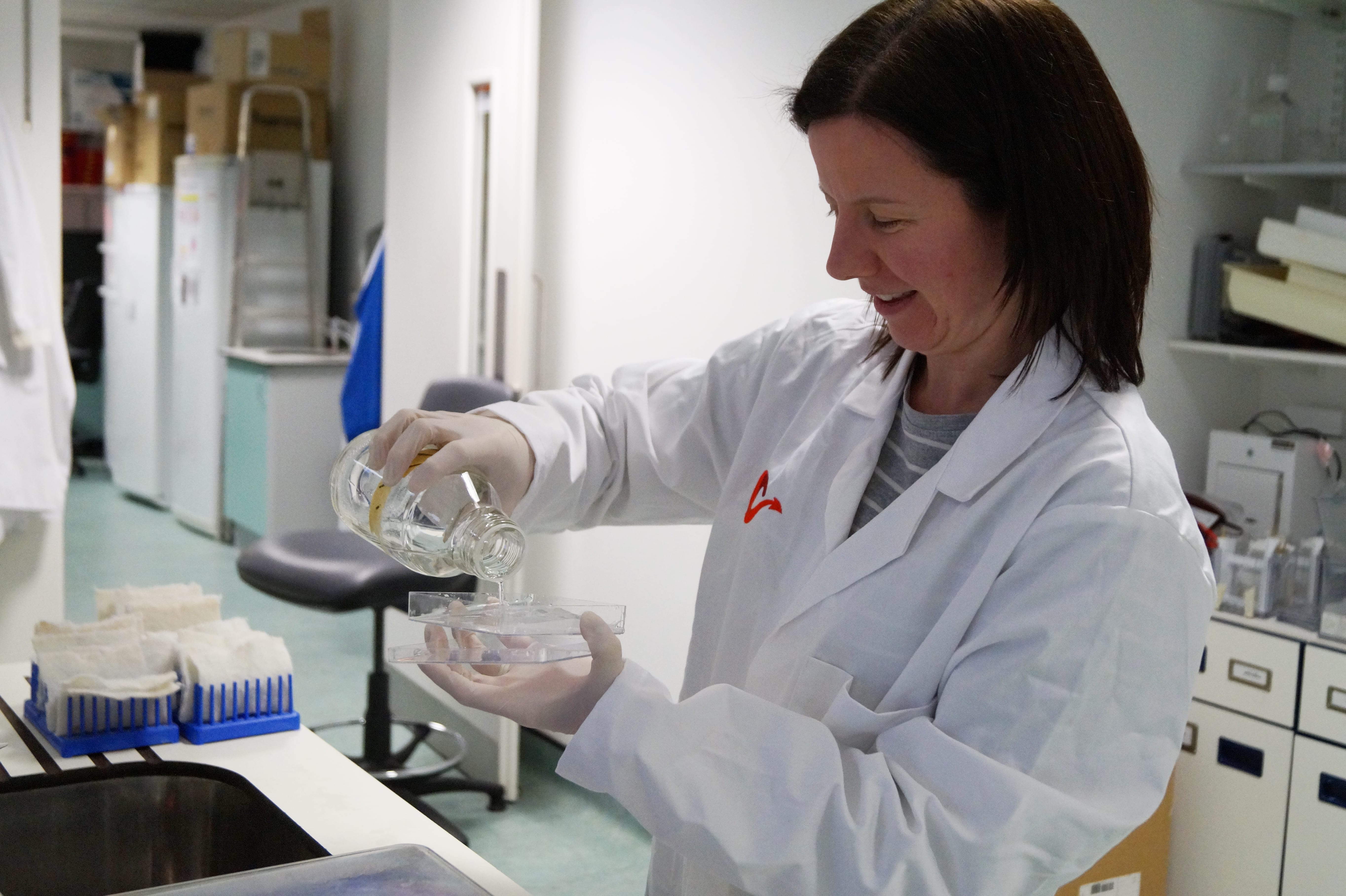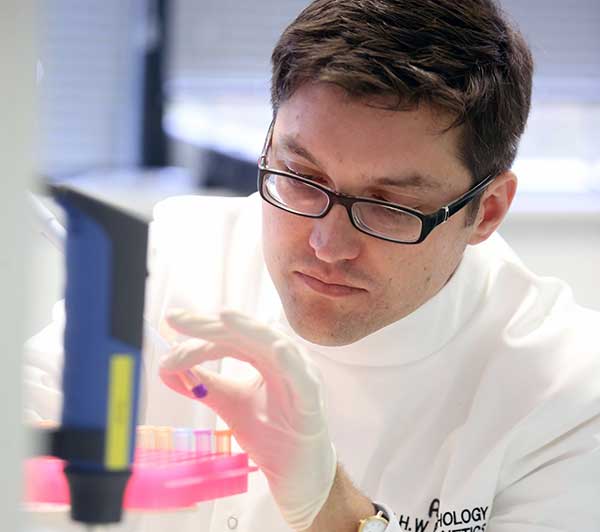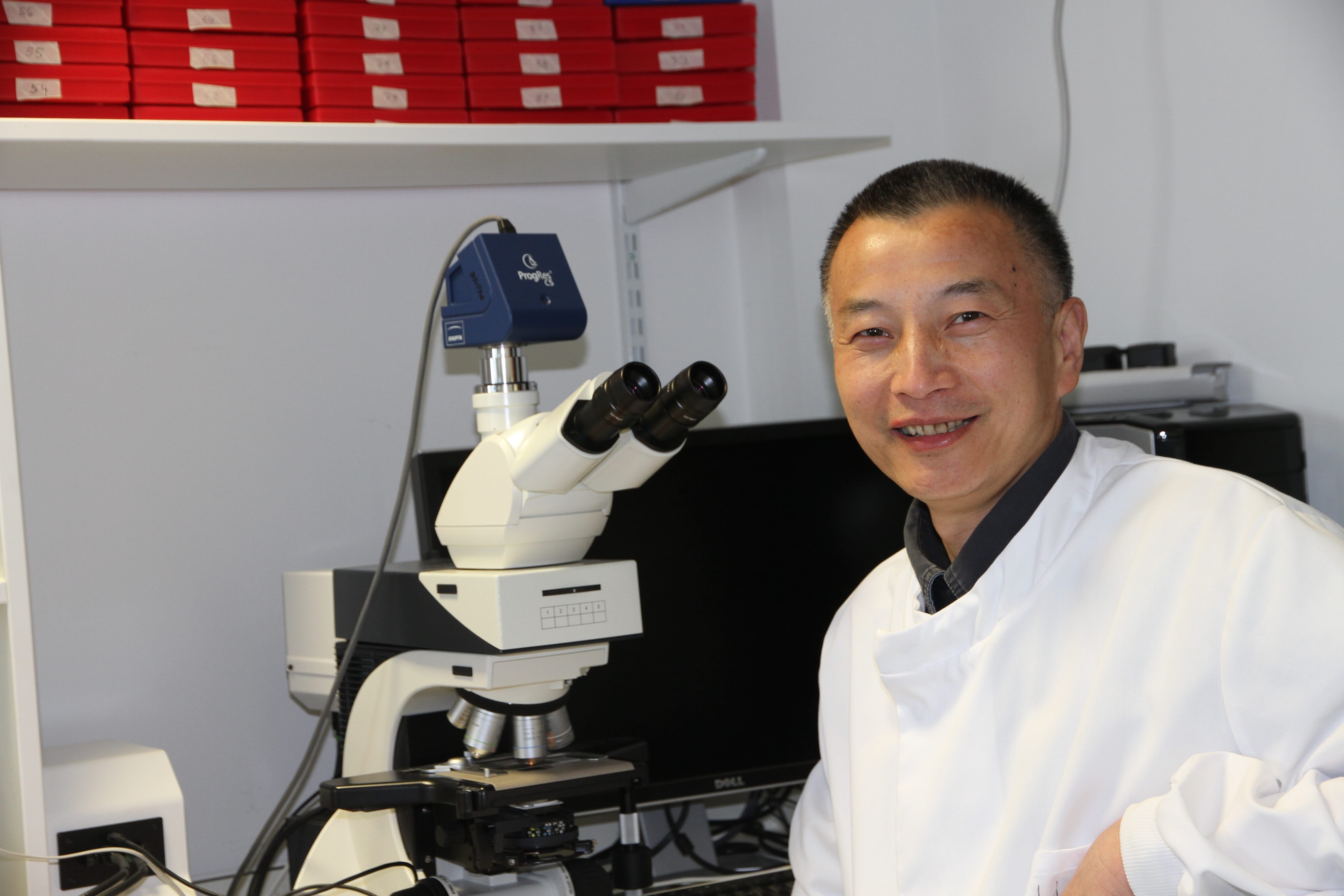Research governance and policies
How the Tuberous Sclerosis Association governs the funding of research
The Tuberous Sclerosis Association (TSA) offers a wide range of opportunities for researchers to receive funding for work that aims to improve our understanding of Tuberous Sclerosis Complex (TSC), in order to ultimately improve the lives of people affected by the condition.
On this page, we discuss different funding opportunities that the TSA has for researchers, application proves of applying for funding and further information on undertaking research with us.
The TSA is a member of the Association of Medical Research Charities (AMRC)
As a member, we are committed to following the principles and practices of effective grant management to include the AMRC’s five principles of peer review, which you can view here.
TSA fully supports the AMRC’s statement on animal research, which you can read more about at the bottom of this page. We also support the AMRC’s position statement on supporting research in universities, which can be found here.
As part of our bi-annual grant round, we offer three different types of funding schemes. More information on this can be found in the section below.
TSA funding schemes
The TSA offers the following funding schemes, through which you can apply for funding. All applications must fall within the TSA’s current research strategy (see here).
If you would like an informal conversation about our funding opportunities, please contact a member of our research team.
PhD studentships
Our PhD studentship grants provide funding for students looking for a research career in TSC and its associated conditions.
Fellowship Awards
Our Fellowship Awards provide funding for researches who plan to develop a strong background in research of TSC and its associated conditions, with the researcher ultimately aiming to become a leader in TSC research.
Project grants
Our Project grants provide funding to support project studies happening in the UK, which aim to research TSC and its associated conditions.
The TSA fully supports the AMRC statement on supporting research in universities. Charitable funding of research relies on public donation and philanthropy.
As funders, we only support the directly incurred costs of research and therefore will not pay indirect or directly allocated costs. Click here to read this statement.
For more information on applying for one of the above schemes, contact our research team.
Research application process
We hold a formal award round every two years, where we go through a rigorous decision-making process. This process ensures we fund the most appropriate and worthwhile projects, in line with our research strategy and in the best interest of individuals living with TSC and their families.
During award rounds, we ask potential applicants to complete and return the following documents:
- Application form (please contact our research team to receive this form)
- Full proposal/protocol for the study
- Biography for each person who will work on the project
- Relevant ethical or other regulatory approval letters
- A use of animals in research form (if applicable, please contact our research team to receive this form)
Upon receipt of an application and all required documentation, the TSA will review the funding request to check its eligibility and to ensure that the research matches our own research strategy.
The applications are then sent to carefully selected external and internal peer reviewers. Peer review is the only way to ensure the very best research is selected for funding and that it is not duplicated by research elsewhere. Our supporters can be confident that the money they raise in good faith is spent in the most effective way, with the best chance of success to improve diagnosis and treatments of TSC.
External peer reviews are carried out by national and international experts, who provide written comments and score the application.
Internal peer reviews are carried out by members of our research committee (RESCOM) (read more about RESCOM here).
Both groups of peer reviewers prepare questions for the applicants, which are collated by our research team and sent anonymously to the applicants. This is known as a rebuttal. Applicants are given suitable time to respond to the rebuttal.
RESCOM members then meet to discuss the applications, the written peer review comments and each applicant’s response to their rebuttal. Members then score each application and rank them. The Chair of RESCOM then makes a recommendation to our financial committee and our Board of Trustees.
We remind all applicants to work with their finance offices, clinical trials units, local NHS trusts and the local NIHR Clinical Research Network (LCRN) to ensure that all the costs of research have been identified and are appropriately funded.
Applications for co-funding
The TSA’s research strategy for 2019 – 2023 encourages us to work closer with other groups who share the same goals that we do in researching TSC. Instead of enabling research as a sole funder, we try to share the cost of a study with other groups
By spreading the cost of funding research with other groups, we can encourage groups who might not otherwise fund TSC research alone to pledge money by working with us. Often, this will mean that more funds are made available overall to continue to drive research into TSC.
Examples of other funders includes (but is not limited to):
If you would like to apply for co-funding, please contact our research team in advance of submitting your application. It is important to approach us as early as possible, so that we can consider the request, approach the other funder(s) and review our processes. If a co-funding application is agreed, we or the other funder(s) will manage the application review process. This will be discussed by all funders and a suitable approach will be agreed.
TSA research funding and ethics
Animals in research
We are a member of the Association of Medical Research Charities (AMRC) and we fully support the AMRC position statement on the use of animals in research. The AMRC’s position statement on animals in research can be found here.
Use of embryos in testing
All UK research involving embryonic stem cells is strictly regulated by the Human Fertilisation and Embryology Authority (HFEA). We support the view of the AMRC that important ethical issues must be taken into account when considering funding research that involves embryonic stem cells.
We also support the Home Office’s commitment to the ‘3Rs’, which serves to:
Download resources
Other useful websites
Related TSA pages
Make a one off or regular donation
£10 Can allow us to send a welcome pack to a family who has just received a life-changing TSC diagnosis, ensuring that they do not go through this time alone.
£25 Can help us develop materials that are included in our support services, flagship events or campaigns.
£50 Can provide laboratory equipment for a day’s research into the causes, symptoms, management or treatment of TSC.
To provide help for today and a cure for tomorrow








